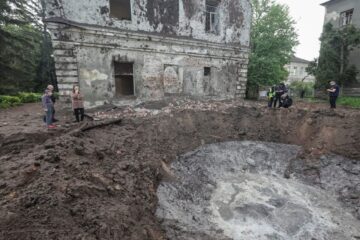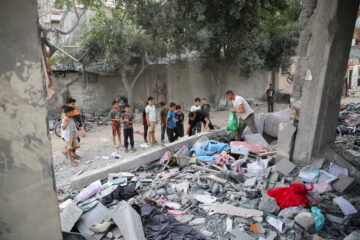Brazil votes for next president after dramatic campaign
Reuters
Brazilians vote Sunday in the most unpredictable presidential election in decades and the first since the end of an economic boom underpinning the leftist Workers\’ Party\’s 12-year rule.
As President Dilma Rousseff seeks a second term, voters are weighing whether the socioeconomic gains of the last decade are enough to reject the candidacies of a popular environmentalist and a pro-business social democrat, who both promise to jumpstart the economy after four years of lackluster growth.
Polls now show Rousseff as the front runner in a race that is likely to go to a runoff on Oct. 26, following one of the most competitive campaigns since Brazil returned to democracy in 1985. The death of one candidate, the unexpected surge of another, and bitter marketing by Rousseff to claw back into the lead have contributed to a nail-biter election as uncertain as the course of the country itself.
"It really is too close to call," said Rafael Cortez, a political analyst with Tendencias, a consultancy in Sao Paulo. "Volatility and frustration favor opposition candidates, but you don\’t really have a crisis to topple the government, either."
Rousseff\’s main rivals are Marina Silva, a hero of the global conservation movement and ruling party defector now with the Brazilian Socialist Party, and Aecio Neves, a senator and former state governor from the centrist party that laid the groundwork for Brazil\’s economic boom last decade.
The two opposition candidates, in a last-minute sprint for runner-up, both vow to return to the market-friendly economic policies that critics say Rousseff abandoned, especially strict budget and inflation targets. They also promise to stop meddling with the big, state-run banks and companies that have been subject to political intervention and corruption scandals in recent years.
"It\’s shameful what has happened to our public companies," Neves complained Thursday night during the final televised debate among the candidates, citing a multi-million dollar kickback scandal now roiling state-run energy company Petroleo Brasileiro SA, or Petrobras.
After trailing Silva for most of the campaign, Neves may have built up enough momentum to advance to a runoff against Rousseff. Three polls on Saturday showed Neves slightly ahead of Silva.
Rousseff can count on a bedrock of support among the working class, thanks to generous social welfare programs that grew in scope during the two terms of her hugely popular predecessor and political godfather, Luiz Inacio Lula da Silva.
"I will vote for Dilma," said Cesar Rogerio, a postman making deliveries Saturday in Rio de Janeiro, citing the uncertainty many working-class voters feel about the direction her rivals might take.
"It\’s bad with her, but will be worse without her."
Even after mass protests a year ago, sparked by the economic malaise and anger over corruption and poor public services, Rousseff heads into the first round as the favorite, helped by a barrage of negative campaigning that eroded an early lead by Silva.
Rousseff might even eke out a first-round victory, although no poll has suggested she has the impetus to clear the 50 percent needed to win the election on Sunday. The numbers for a runoff are tighter, but also give Rousseff an edge.
During the boom, fueled by soaring commodity exports to China and other emerging economies, Brazil\’s economy grew by an average of more than 4 percent a year, lifting more than 30 million people from poverty. Now the economy, which dipped into recession last quarter, is on track to grow less than 2 percent a year by the end of Rousseff\’s term in December.
Unemployment, however, remains near a record low, despite the weak economy, bolstering Rousseff\’s popularity among working-class voters.
The daylong vote will unfold at 450,000 polling stations across the country of 200 million people, from the densely populated metropolitan areas of the southeast to remote Amazon villages. Voters will also elect governors, members of Congress and state legislators.
More than 140 million people are registered to vote in Brazil, where everyone between the ages of 18 and 70 is required to cast a ballot. The voting is fully computerized, meaning results are expected just a few hours after polls close in western states.
Because of the tight race, campaigning has been noisier than usual in a country where the electoral process at times feels more like a carnival than a race.
Candidates employ armies of pamphleteers and flag-wavers at street corners, while campaign jingles, often composed by celebrity musicians, blast from sound cars and televisions. Broadcasters are required by law to carry an allotted amount of electoral content.
To stand out, some candidates use gimmicks, posing as clowns and super heroes, or harping on secondary issues such as marijuana legalization and kindness to animals.
This year\’s frenzy was briefly disrupted in August, when Eduardo Campos, the original Socialist Party candidate for president, died in a plane crash. After a week of mourning, the race was upended when Silva, who had been his running mate, took his place and soared in the polls.
Source: Reuters
[do_widget_area inner_adsbar]








